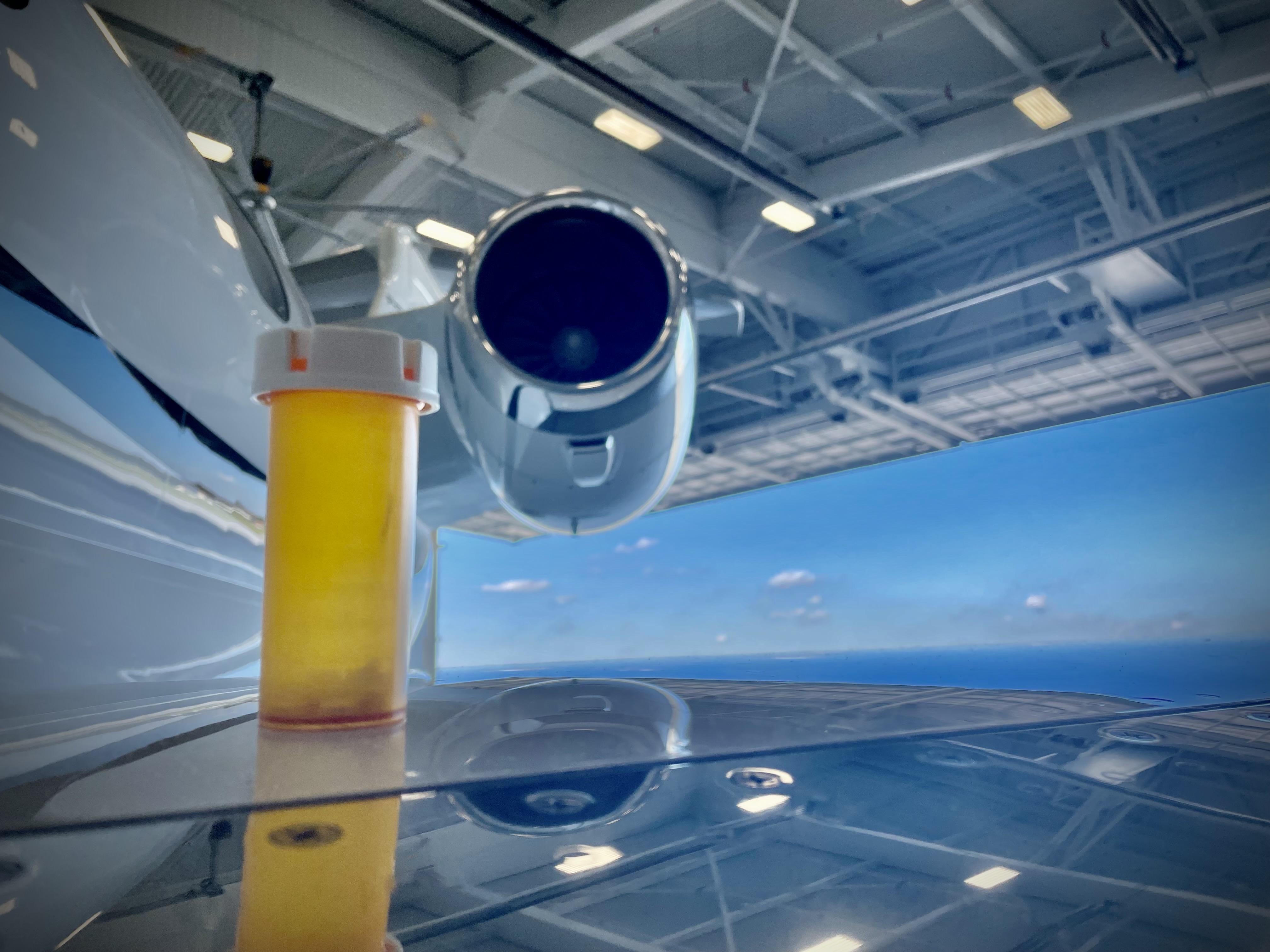Viewpoint: Flying With Depression: Normalize Treatment For Pilots

Mental health issues are no longer taboo in the United States, but for pilots, seeking treatment for common issues like depression can be job-ending.
The FAA ended its complete ban on antidepressants for pilots more than 10 years ago to reduce the stigma of mental illness and allow pilots secretly taking medication to come into compliance.
Unfortunately, the ban lift was only intended for “situational depression” and is not a blanket approval to take antidepressants for what could be a long-term illness.
While this rule was intended to destigmatize mental health conditions, it represents an inaccurate position on how to effectively treat depression.
Situational depression is usually caused by sudden life-changing events such as divorce or job loss and usually doesn’t require medication to resolve.
Clinical depression is the more insidious, long-term condition that requires therapy and the use of medication. Medications are often used to prevent the recurrence of clinical depression over long-term periods.
Plus, these medications are more effective when the illness is more severe. Medication does not really help in cases of mild depression.
For pilots struggling with moderate or severe depression, this leaves effective treatment out of reach.
Depression isn’t just a problem for the individual struggling with its effects, but its symptoms are a major hazard to flight safety.
Depression can cause irritability, trouble thinking or concentrating, fatigue, difficulty making decisions, memory issues, and slowed thinking.
In a job where quick decision-making and good crew resource management are required to handle emergencies in-flight, depression is a serious condition that pilots need to be able to treat without fearing for their livelihoods.
A study of airline pilots has estimated at least 12% of pilots are clinically depressed, with 4% of respondents having suicidal thoughts in the previous two weeks before the survey.
With shift work, long hours, lack of access to good nutrition during the workday and long stretches away from friend and family networks, pilots have more risk factors for depression.
Combined with the fear of treatment causing loss of their medical license, and subsequently, their job, means depression in crews is likely more prevalent than we think.
Many depressed pilots are likely taking antidepressants or are in therapy without approval from the FAA and their aeromedical physician.
Worse, those who hide their condition and go untreated are dangerous for passengers and their flightdeck. In a study of accident reports published by the NTSB, 5% of the reports indicated an unreported illness or medication was taken by the pilot involved in the accident.
For a condition that is so highly treatable, it’s nonsensical that these flight crews need to hide in the shadows.
The FAA has struggled with regulating the use of SSRIs (serotonin reuptake inhibitors) and other medication for depressed crew members, citing the fear of side effects like insomnia, decreased blood pressure or even blurred vision.
Regulators have been erroneously focused on the dangers of the side effects, instead of the dangers of untreated symptoms. With good oversight and open dialogue with patients, however, many physicians feel the potential side effects of SSRIs do not pose a significant risk to flight safety.
The effects of untreated depression may hold significantly more risk than the side effects of antidepressants.
Depression doesn’t just affect pilots.
Rates of depression have grown steadily over the last 20 years, and moderate to severe depression is undertreated globally.
Around one in five people will experience a major depressive disorder at least once in their life. Plus, attitudes towards mental illness and depression are changing: 87% of Americans agree that “having a mental health disorder is nothing to be ashamed of,” according to the American Psychological Association.
In a society where depression is a normal part of the human experience, the aviation community needs to embrace modern treatments for aircrews.
With the global pandemic creating uncertainty, significant life changes, and increased working hours for flight crews, pilots need realistic access to mental health care, and treatments. Health experts are concerned about the increasing stress on aircrews leading to increasing risks of suicide.
In Australia, where the use of SSRIs in pilots has been permitted since 1987, studies have found “no evidence of adverse safety outcomes arising from permitting individuals to operate as commercial or private aircrew or air traffic controllers while using antidepressants provided specific criteria are met and maintained.”
Professionals in aerospace medicine are encouraging aviation authorities to remove the absolute prohibition on medications that can dramatically reduce the risks of depression on flight safety.
The great news is that clinical depression is highly treatable.
For pilots secretly seeking treatment with SSRIs, around half of them can see major improvements in symptoms in only six to eight weeks. For those struggling, there are great treatment paths.
The aviation community needs to come together to support these flight crews and ask for a path forward for their well-being, and their careers.
Are you in crisis? The National Suicide Prevention Lifeline provides 24/7, free and confidential support for those in distress. Call 1-800-273-8255 or visit https://suicidepreventionlifeline.org.
Do you think we need more treatment options for flight crews?
Submit your comments through the FAA’s Stakeholder Feedback Service at: https://www.faa.gov/about/office_org/headquarters_offices/avs/stakehold…
Jessie Naor is COO of GrandView Aviation, a Part 135 charter operator. She serves on the executive committee of the Air Charter Safety Foundation and is vice-chair of the National Air Transportation Association’s Part 135 committee.




